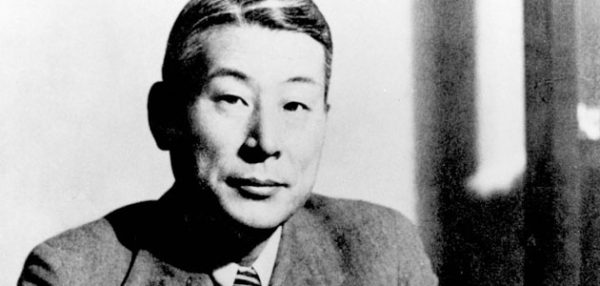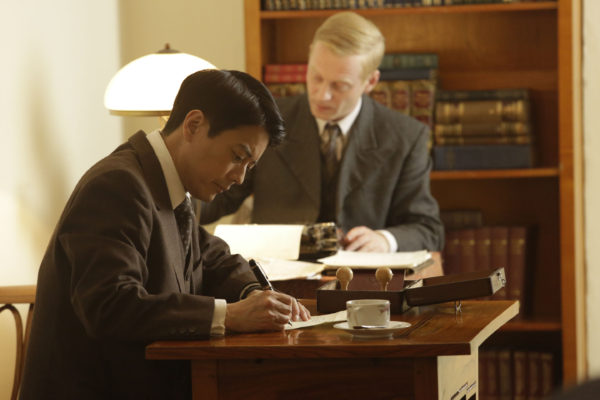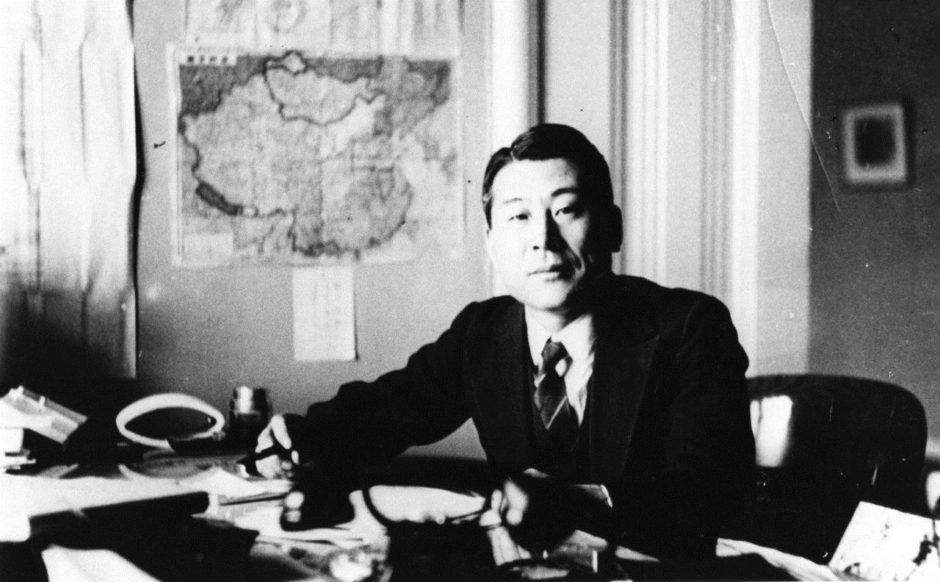Japanese diplomat Chiune (Senpo) Sugihara was at the right place at the right time as far as 2,139 Jews and their current 40,000 descendants are concerned.

Sugihara was Japan’s consul in Kaunas, Lithuania, from 1939 to 1940. His task was to gather intelligence on the Soviet Union, Japan’s nemesis. He did that assiduously, to the satisfaction of his masters in Tokyo. But in contravention of Japanese policy, he issued transit visas to Jews intent on escaping from Nazi-occupied Europe.
Cellin Gluck’s movie, Persona Non Grata, tells his story in dramatic fashion. It will be screened at the fifth annual Toronto Japanese Film Festival, which runs from June 9-23 at the Japanese Canadian Cultural Center.

Unfolding in Japanese, English, Russian, Polish and German, it was shot in Poland but is set in Japan, China, Lithuania, Russia, Germany and Romania. The cast is composed primarily of Japanese and Polish actors.
Posted to the Chinese city of Harbin in 1934, Sugihara (Toshiaki Karasawa) fell in love with a Russian woman (Agnieszka Grochowska), whom he would meet again later in his career. Having incurred the wrath of the Soviet Union, which had key interests in Harbin, he was unable to fullfill his dream of serving in Moscow.
He and his new wife, Yukiko (Koyuki), arrived in Lithuania on the eve of its conquest by the Soviet Union. Sugihara learned about German antisemitic atrocities in Poland from a local Jewish businessman. The scene in which this information was conveyed to him takes place during a festive Chanukah meal in December 1939.
With the Soviet occupation of Lithuania, Jews gathered in front of the Japanese consulate in Kaunas. Many of them were Orthodox Jews who managed to leave German-occupied Poland. They sought passage out of Lithuania, which would soon be occupied by Germany. With Sugihara’s transit visas in hand, they took a trans-Siberian train to the Soviet port of Vladivostok. From there, they reached the safety of Japan by boat.
Sugihara, of course, was caught on the horns of a dilemma.
Being a humanitarian, he wanted to help Jews get out of Lithuania. But he was keenly aware that the Japanese government, which was aligned with Germany, was loath to grant asylum to Jewish refugees who might not be able to cover their expenses in Japan.

Sugihara’s driver, a former Polish intelligence officer, urged him to stay neutral and deny Jews the visas. Sugihara was not so inclined, and his wife encouraged him to follow his impulses.
The film moves along at a fairly brisk pace, and the cast is fine. But there is a misconceived scene, which takes place on board a ship bound for Japan, that is incredibly misplaced. As Japan’s coastline appears, the Jewish passengers break out in joy, spontaneously singing the Zionist national anthem, Hatikva, in Hebrew. It’s an intensely kitschy moment. Persona Non Grata, however, quickly recovers from this lapse and proves to be a satisfying movie.
